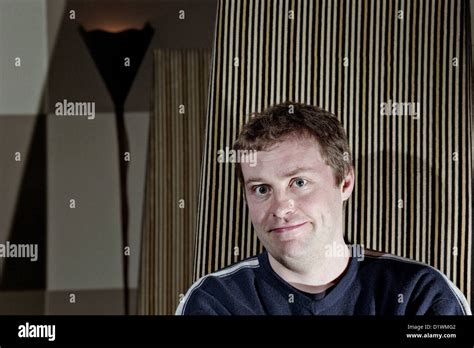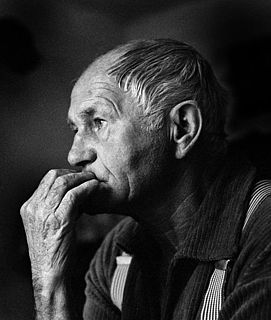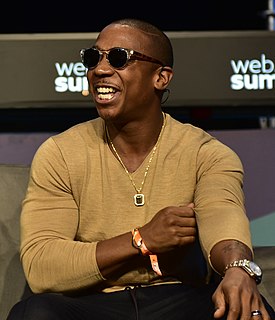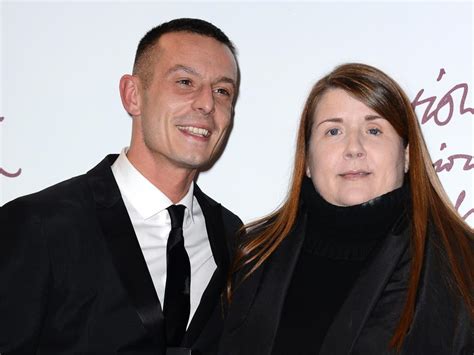A Quote by John Scalzi
It took me eight books to finally be at a point in my career where I could come out with a book and say, 'This is meant to be a funny book,' and we didn't have to make any bones about it.
Related Quotes
If you want to write about a person who isn't nice, people say, "This is a bad book. It's about somebody I couldn't stand." But that's not the point. You don't have to like a character to like a book. Most of the time, people would misjudge and say, "I didn't like the book." No, you didn't like the character. That doesn't make it any less interesting of a book. In fact, to me, it makes it more interesting.
I can walk into a bookshop and point out a number of books that I find very unattractive in what they say. But it doesn't occur to me to burn the bookshop down. If you don't like a book, read another book. If you start reading a book and you decide you don't like it, nobody is telling you to finish it.
I wrote a book called 'Doll Bones', which was another middle-grade book, and when I was writing it, I needed a place in the U.S. that made bone china. And there are only two places in the U.S. that make bone china. They made it by grinding down actual cow bones. It was a plot point. It was a creepy doll book.
I believe in books. And when our people [coughing] - our people of Jerusalem, let's say after the Romans destroyed the temple and the city, all we took is a little book, that's all. Not treasures, we had no treasures. They were ransacked, taken away. But the book - the little book - and this book produced more books, thousands, hundreds of thousands of books, and in the book we found our memory, and our attachment to that memory is what kept us alive.
There's a part of me with every book that thinks, What would it have meant for me tohave had this book when I was a kid? I decided to create a book for girls like me. The Littlest Bigfoot is about bullying and body image and girls who don't fit in. It's like training wheels for my adult books - like Sex and the City, but with 12-year-olds.
I don't change the language for children books. I don't make the language simpler. I use words that they might have to look up in the dictionary. The books are shorter, but there's just not that much difference other than that to be honest. And the funny thing is, I have adult writer friends [to whom I would say], "Would you think of writing a children's book?" and they go, "No, God, I wouldn't know how." They're quite intimidated by the concept of it. And when I say to children's books writers, would they write an adult book, they say no because they think they're too good for it.
A lot of people say I tried to emulate Tupac, but when I look back at my career, we're very different artists. I took pages out of Pac's book, of course, and lots of other rappers - Biggie, Nas - of course you take pages out of those books, but you eventually make it your own thing. And I think I did a good job of that.
I'd say the purest experience for the movie is not to have read the book because I think when you've read the book you're just ticking off boxes. I think that after you see the movie, reading the book is a cool thing. I always say the movie's not meant to replace the book. That's ridiculous. I'm a huge fan of the book.
Students may feel the criticism is harsh, but I think it's possible they haven't had criticism before. It's my job to point out when something is badly done, or when there's no point of view. To build a brand you have to have something about you. If not personality, then some thought process. I'm 40, and they're young, so they're meant to be informing me. They should be bringing me a book or something that I haven't seen, not like some obscure chant book by Dominican monks, but an image of the way they see the world.
"The Diagnosis" is by far my most ambitious book. I such great hopes for it... there was so much I wanted to do with the book. I was extremely insecure about it for several years. Just didn't know whether I would finish the book much less for it to come close to what I intended. I think that for any novel you never know exactly how the book is going to turn out...
I was one those kids who had books on them. Before weddings, Bar Mitzvahs, funerals and anything else where you're actually meant to not be reading, my family would frisk me and take the book away. If they didn't find it by this point in the procedure, I would be sitting over in that corner completely unnoticed just reading my book.


































